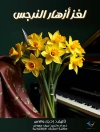In ‘The Journalism of Oscar Wilde, ‘ readers are invited into the vibrant world of one of the most celebrated literary figures of the late 19th century. This collection showcases Wilde’s sharp wit and profound insights, articulated through a variety of journalistic genres, from critiques of art and culture to reflections on society and its moral dilemmas. Employing a distinctive literary style characterized by epigrammatic brevity and flamboyant prose, Wilde navigates the complexities of Victorian society, intertwining aestheticism with biting social commentary. The essays reveal not only Wilde’s masterful command of language but also his deep engagement with the pressing issues of his time, such as class disparity and the nature of beauty. Oscar Wilde, born in 1854 in Dublin, was a central figure in the Aesthetic Movement, advocating for ‘art for art’s sake.’ His diverse experiences, from his classical education at Trinity College Dublin to his flamboyant reputation in London’s elite circles, undoubtedly shaped his perspective on art and society. These influences culminated in his journalistic endeavor, allowing him to challenge the moralistic conventions of his day while advocating for artistic freedom and personal expression. This anthology is highly recommended for those interested in the intersections between literature, journalism, and social critique. Wilde’s journalism offers an essential glimpse into the thoughts of a master provocateur, providing contemporary readers with a lens to understand not only his own tumultuous era but also our own. Whether you’re a scholar of Wilde or a curious newcomer, this collection is a testament to his brilliance and an invigorating exploration of the power of words.
Circa l’autore
Oscar Wilde, born Oscar Fingal O’Flahertie Wills Wilde on October 16, 1854, in Dublin, Ireland, is celebrated as one of the most eloquent and daring writers of the late 19th century. Educated at Trinity College, Dublin, and Magdalen College, Oxford, Wilde distinguished himself not only through academic excellence but also through his wit and flamboyant aestheticism. A renowned poet, playwright, and novelist, he navigated through different literary genres with unique brilliance and satire. His opus includes the novel ‘The Picture of Dorian Gray’ and plays such as ‘The Importance of Being Earnest’ and ‘An Ideal Husband’, revealing social pretensions through his sharp dialogue and clever plot constructions. His witty epigrams have become part of the English lexicon. Wilde’s lesser-known foray into journalism is chronicled in ‘The Journalism of Oscar Wilde’, which includes his essays and articles showcasing his varied interests and the breadth of his intellect. Despite his literary achievements, Wilde’s career was marred by scandal following his imprisonment for ‘gross indecency’. Nevertheless, his works have outlived the controversy, cementing his place in the literary canon. Wilde’s writing style was characterized by its flamboyance, sharp wit, and a satirical tackling of societal norms, which continues to influence writers and thinkers today. Wilde passed away destitute in Paris on November 30, 1900, but left behind a legacy that immortalized him as a central figure in the annals of English literature.












